4 Heart-Healthy Foods a Cardiologist Eats
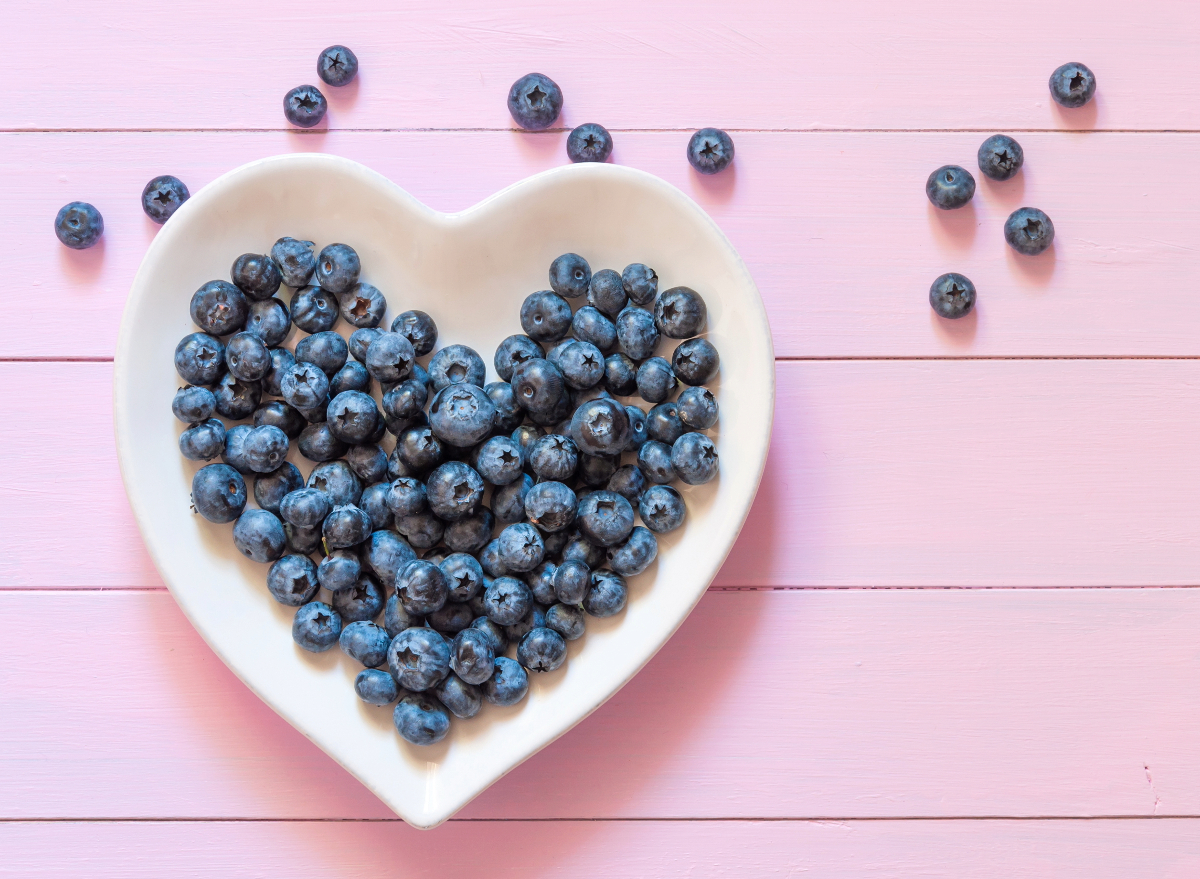
There are several ways you can support heart health, from staying active to managing stress. And according to Elizabeth Klodas, MD, FACC, a board-certified cardiologist, founder of the Preventative Cardiology Clinic, and founder and chief medical officer of Step One Foods, prioritizing nutrition is one of the most important things you can do to protect your ticker.
Diet plays an integral role in many of the risk factors for heart and cardiovascular disease, so making sure you're eating healthy can be an effective way of maintaining a healthy heart and preventing (or helping manage) heart disease.
According to Dr. Klodas, "There are seven major modifiable risk factors for heart and vascular disease. These include high cholesterol, high blood pressure, high blood sugar/diabetes, excess weight, poor diet, smoking, and inactivity. If you look at that list you can see that the first five contributors are related in part or in whole to what we eat."
If you're eager to make some changes to your diet, gain some inspiration from the heart-healthy foods that Dr. Klodas eats regularly to keep her heart in good health. On a daily basis, she aims to include four nutrient groups in her meals, most of which come from plant-based foods. Keep reading to learn all about the heart-healthy foods Dr. Klodas eats in a day. And when you're done, don't miss out on the 10 Best Superfood Snacks to Strip Away Belly Fat.
Omega-3 Fatty Acids, like Nuts and Seeds
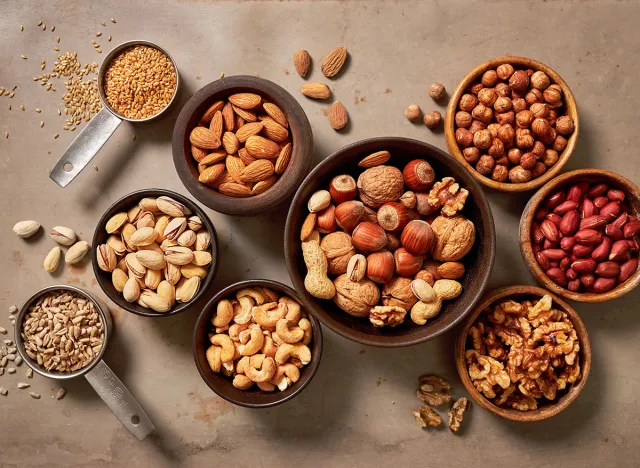
First up on this list of heart-healthy foods a cardiologist eats in a day are omega-3 fatty acids. Some of the best examples of omega-3 foods include wild rice, red lentils, spinach, navy beans, winter squash, hemp seeds, chia seeds, walnuts, wild salmon, sardines, herring, and grass-fed beef.
"Omega-3 fatty acids are anti-inflammatory, help thin the blood slightly to prevent blood clots, lower blood pressure, and help raise good cholesterol while lowering triglycerides," Dr. Klodas explains.
Antioxidants, like Berries
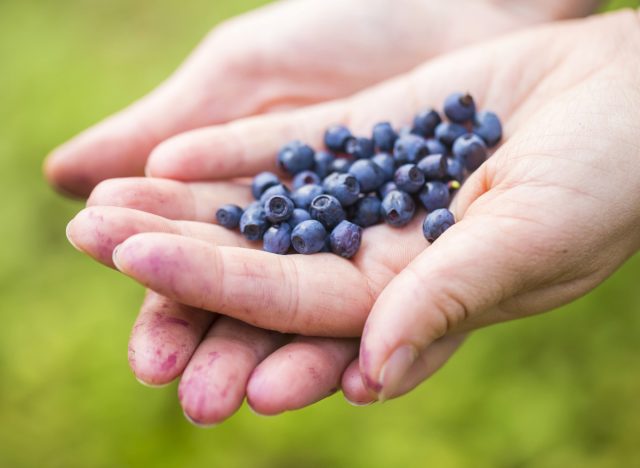
If you want to give your heart health a solid boost, it's important to address and reduce chronic inflammation. Inflammation is associated with a plethora of health issues, and research shows that decreasing it can help you avoid heart disease and strokes.
Adding foods that are chock-full of antioxidants to your diet can aid in your efforts to fight chronic inflammation. According to Dr. Klodas, "Antioxidants fight free radicals inside our bodies helping slow aging, reducing inflammation, and helping to neutralize any circulating toxins." Some examples of the best antioxidant-rich foods include tomatoes, oranges, wild blueberries, spinach, dark chocolate, and green tea.
Whole Food Fiber, like Whole Grains
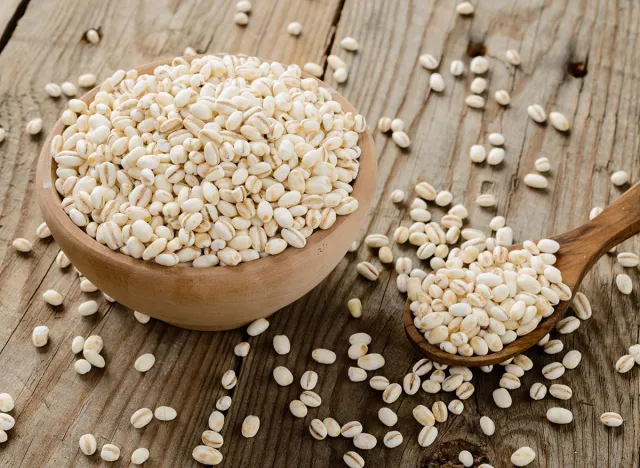
Fiber is a crucial aspect of a healthy, well-rounded diet, yet many of us don't get enough of it. Fiber helps keep you fuller for long after you finish a meal, and it helps you maintain a healthy body weight. In addition, Dr. Klodas explains, "[Fiber helps] support a healthy gut microbiome and keeps cholesterol levels down by preventing cholesterol from being absorbed in the digestive tract."
Women should strive to consume 25 grams of fiber each day, and men should aim to consume around 38 grams, the Academy of Nutrition and Dietetics reports. You can naturally get your fill of fiber from many whole fruits and veggies. Some of the best high-fiber foods to add to your diet include split peas, collard greens, pomegranate seeds, flax seeds, dried figs, canned pumpkin, bananas, artichoke hearts, steel-cut oats, bulgar, and pearled barley.
Plant Sterols, like Leafy Greens
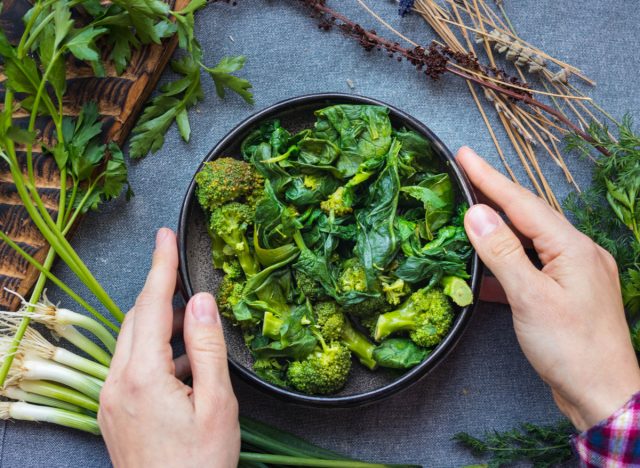
Last but not least on this list of heart-healthy foods a cardiologist eats, we'll wrap up with plant sterols, or "phytosterols." These natural plant components prevent cholesterol from being absorbed into your digestive system, Dr. Klodas explains.
According to the Cleveland Clinic, consuming plant-based foods that contain phytosterols is a safe way to decrease your cholesterol levels and prevent health issues like strokes and heart attacks. In addition, they can help lower your risk of diabetes, cancer, and obesity.
Whole grains, nuts, veggies, fruits, and milk and cheese that are phytosterol-fortified are all excellent sources of phytosterols. You can also get phytosterols in the form of dietary supplements.
Take it One Step at a Time
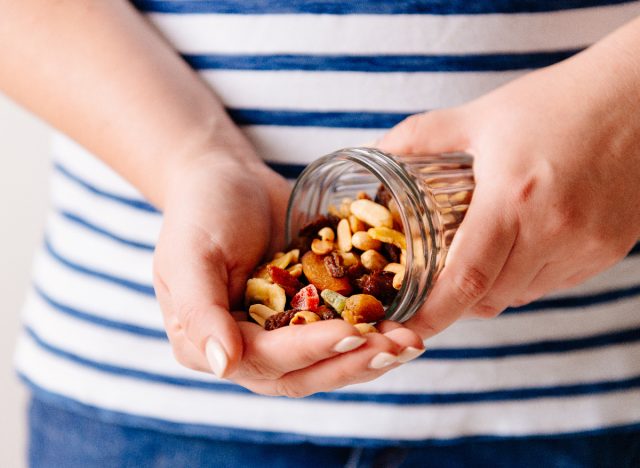
When it comes to diet and lifestyle habits, there's no need to strive for absolute perfection in order to reap health benefits. Even the smallest tweaks in your diet can make a big difference over time. For instance, Dr. Klodas explains, "Changing out two snacks a day for ones made from whole real food plant-based ingredients strategically combined to deliver fiber, omega-3 fatty acids, plant sterols, and antioxidants could lower cholesterol by as much as a drug in some people… in 30 days!"
- Source: https://health.gov/myhealthfinder/health-conditions/heart-health/keep-your-heart-healthy
- Source: https://www.ncbi.nlm.nih.gov/pmc/articles/PMC5996084/
- Source: https://www.eatright.org/health/essential-nutrients/carbohydrates/easy-ways-to-boost-fiber-in-your-daily-diet
- Source: https://my.clevelandclinic.org/health/articles/17368-phytosterols-sterols--stanols









